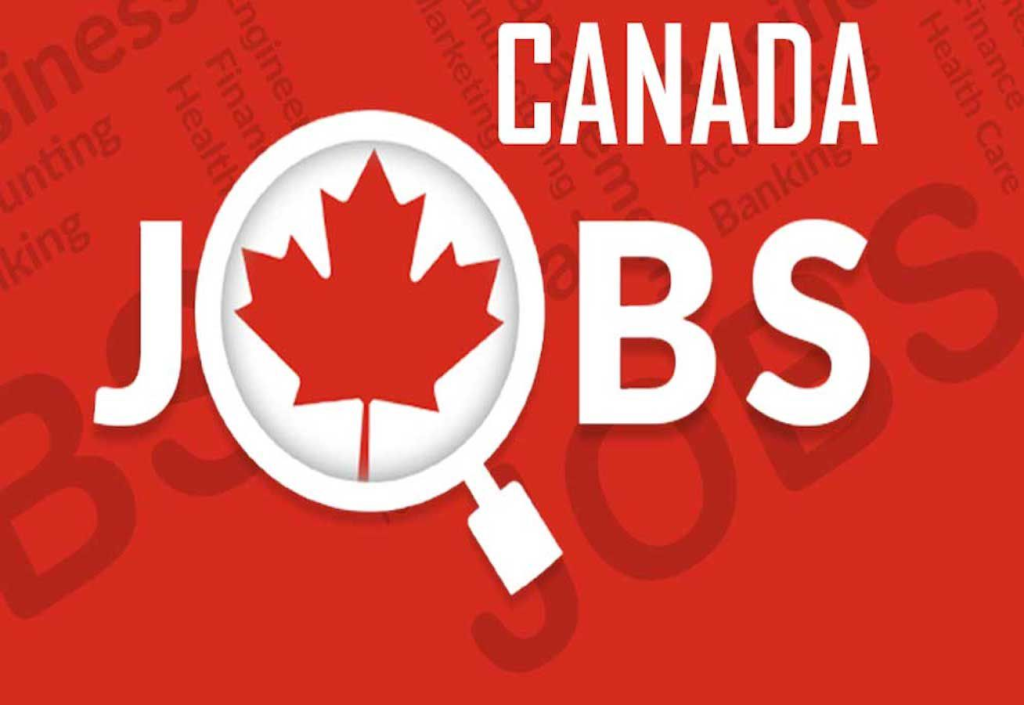Getting Canada job offers from outside shouldn’t be difficult no matter where you are.
Are you currently outside of Canada and interested in exploring job opportunities within the country? Look no further!
In this guide, we will provide simple yet effective strategies to help you secure a job offer in Canada, even if you currently reside abroad.
In today’s globalized world, securing job offers from outside Canada may seem daunting.
However, with the right strategies and a proactive approach, it is possible to unlock many employment opportunities in the Great White North.
From leveraging online platforms to building professional networks, refining your resume, and highlighting your unique skills and qualifications, this comprehensive guide will equip you with the tools and knowledge needed to stand out in the competitive Canadian job market.
Whether you are a skilled professional seeking new horizons or a recent graduate eager to kick-start your career, prepare to embark on a transformative journey toward landing your dream job in Canada.
Can I Get A Canada Job Offers from Outside?
One frequently asked question has always been about the possibility of getting a job offer from outside Canada. It is possible to get a Canadian job offer from outside of Canada.
Many employers in Canada actively seek international talent and are open to hiring individuals currently residing outside the country.
However, securing a job offer from abroad can be a competitive process that requires careful planning, research, and proactive job searching.
Remember to stay persistent, maintain a positive attitude, and showcase your skills and enthusiasm to potential employers. Good luck with your job search!
15 Ways To Get a Canada Job Offers From Outside?

Here are 15 friendly tips to help you secure a job offer in Canada from outside the country for people living overseas;
1. Research the Canadian job market.
Begin by familiarizing yourself with the Canadian job market, industry trends, and the specific requirements for your desired field.
This will help you understand the job landscape and tailor your job search accordingly.
2. Update your resume.
Craft a well-structured and targeted resume highlighting your skills, qualifications, and relevant work experience.
Ensure your resume meets Canadian standards and focuses on accomplishments and transferrable skills.
3. Network extensively.
Leverage professional networking platforms like LinkedIn to connect with individuals working in your field of interest in Canada.
Engage in conversations, ask for advice, and seek informational interviews to expand your network and gain valuable insights.
4. Attend virtual job fairs.
Many Canadian job fairs now occur online, making it easier for job seekers abroad to participate.
Register for virtual job fairs, interact with employers, and explore potential opportunities.
5. Engage with professional associations.
Join professional associations and organizations related to your industry.
These groups often offer resources, job boards, and networking events to help you connect with employers and professionals in your field.
6. Consider Canadian immigration programs.
Research the various immigration programs offered by the Canadian government, such as the Express Entry system or Provincial Nominee Programs.
Understanding these programs can give you insights into the pathways available for skilled workers.
7. Tailor your applications.
Customize your cover letters and job applications to align with each job opportunity.
Highlight how your skills and experiences make you a great fit for the role and demonstrate your enthusiasm for working in Canada.
8. Leverage online job portals.
Utilize popular Canadian job searches websites like Indeed, Monster, or Workopolis to explore job openings.
Create personalized job alerts to receive notifications for relevant positions as they become available.
9. Volunteer or intern.
Consider volunteering or interning with Canadian organizations in your field.
This helps you gain valuable experience, expands your professional network, and showcases your commitment to the Canadian job market.
10. Seek assistance from recruitment agencies.
Work with reputable recruitment agencies specializing in your field.
These agencies can provide valuable insights, match you with suitable job opportunities, and guide you through the hiring process.
11. Polish your interview skills.
Prepare for virtual interviews by researching common questions, practicing your responses, and conducting mock interviews with friends or career coaches.
Familiarize yourself with the company’s values, culture, and recent achievements to showcase your enthusiasm and knowledge during interviews.
12. Be flexible with relocation.
Be open to the possibility of relocating to Canada. Mention your willingness to relocate in your applications and during interviews to demonstrate your commitment and flexibility.
13. Enhance your language skills.
Improve your English or French language skills, as these are the official languages of Canada.
Take language proficiency exams like IELTS or CELPIP to showcase your language abilities to employers.
14. Showcase your cultural adaptability.
Emphasize your cross-cultural communication skills, adaptability, and experiences working in diverse environments. Employers appreciate candidates who can thrive in multicultural settings.
15. Stay positive and persistent.
Job searching can be challenging, so it’s important to maintain a positive attitude and stay persistent.
Celebrate small wins, seek support from friends and family, and stay motivated.
Also see: How To Find Canadian Jobs For Immigrants
What Is The Easiest Way To Get A Canada Job Offers From Outside?

1. Pursue education in Canada.
Enrolling in a Canadian educational institution can provide networking opportunities, gain Canadian work experience through co-op programs, and access post-graduation work permits, which may lead to job offers.
2. Obtain a job offer with LMIA.
The Labour Market Impact Assessment (LMIA) is a document employers require to hire foreign workers when no Canadian citizens or permanent residents are available.
If you can secure a job offer supported by an LMIA, it may increase your chances of obtaining a work permit and, eventually, permanent residency.
3. Apply through Express Entry.
The Express Entry system is a popular pathway for skilled workers to immigrate to Canada.
If you meet the eligibility criteria, creating an Express Entry profile and scoring high enough in the Comprehensive Ranking System (CRS) can lead to an invitation to apply for permanent residency, making you an attractive candidate for Canadian employers.
4. Explore Provincial Nominee Programs (PNPs).
Each Canadian province or territory has its own PNP, which allows them to nominate individuals who meet specific criteria for permanent residency. Some PNPs have streams dedicated to attracting foreign workers with job offers in specific occupations or industries.
5. Consider intra-company transfers.
If you are currently employed by an international company with offices in Canada, inquire about the possibility of an intra-company transfer.
This may allow you to relocate to a Canadian branch of your company and potentially lead to long-term employment opportunities.
6. Network and leverage connections.
Networking is crucial in the Canadian job market. Reach out to professionals in your field, attend industry events or virtual conferences, and use professional networking platforms like LinkedIn to connect with potential employers.
Building relationships and tapping into hidden job markets can increase your chances of finding job opportunities.
7. Gain Canadian work experience.
Consider gaining Canadian work experience through internships, volunteering, or short-term contracts.
This can help you build a professional network, enhance your skills, and increase your familiarity with the Canadian work environment.
Can One Directly Go To Canada For A Job?

In most cases, you need the necessary legal permissions and documentation to go to Canada for a job.
The Canadian government has specific immigration and work permit regulations that you must adhere to work legally in the country. Here are a few common pathways to consider:
1. Work permit.
You generally need a work permit to work in Canada.
There are different types of work permits, such as open work permits and employer-specific work permits.
An employer-specific work permit requires a job offer from a Canadian employer who has obtained a positive Labour Market Impact Assessment (LMIA) or qualifies for an LMIA exemption.
2. The Express Entry System.
The Express Entry system is a popular pathway for skilled workers who want to immigrate to Canada.
It includes the Federal Skilled Worker Program, the Federal Skilled Trades Program, and the Canadian Experience Class.
If you meet the eligibility criteria and have the necessary skills and qualifications, you can create an Express Entry profile and be considered for permanent residency.
3. Provincial Nominee Programs (PNPs).
Canadian provinces and territories have their PNPs, which allow them to nominate individuals who meet specific criteria for permanent residency.
Some PNPs have streams prioritizing foreign workers with job offers in specific occupations or industries.
4. Intra-Company Transfers.
If you work for an international company with offices in Canada, you may be eligible for an intra-company transfer.
This allows you to transfer to a Canadian branch of your company, often on a temporary work permit, with the possibility of long-term employment.
Is It Easy To Get A Job In Canada From Overseas?

Getting a job in Canada from overseas can be challenging, but it is certainly possible with the right approach and preparation. Here are a few factors to consider:
1. Job market and demand.
The ease of getting a job in Canada from overseas can depend on the specific job market and demand in your field.
Some industries in Canada may have a high demand for skilled workers, making it easier to find employment, while others may be more competitive.
2. Skills and qualifications.
Having in-demand skills and qualifications that align with the Canadian job market can significantly increase your chances of securing a job offer.
Research the skills and qualifications sought after by Canadian employers in your field and ensure that you possess or can acquire them.
3. Networking.
Building a strong professional network in Canada can be beneficial.
Engage with professionals in your field through platforms like LinkedIn, participate in industry events or online communities, and seek informational interviews to expand your connections.
Networking can lead to job opportunities and provide valuable insights into the Canadian job market.
4. Work experience.
Canadian employers often value relevant work experience, so having international work experience in your field can be an advantage.
Highlight your accomplishments and transferable skills on your resume to demonstrate your qualifications to potential employers.
5. Language proficiency.
Strong language skills, particularly in English or French (Canada’s official languages), are essential for most job opportunities.
Improving your language proficiency through language courses or tests such as IELTS or CELPIP can enhance your chances of securing a job.
6. Research and preparation.
Thoroughly researching the Canadian job market, specific industry trends, and employer expectations will help you tailor your job search strategy and applications accordingly.
Understanding the local work culture and norms can also be beneficial during interviews and networking.
7. Immigration pathways.
Familiarize yourself with the available immigration pathways, such as Express Entry, Provincial Nominee Programs (PNPs), or work permits, that may facilitate your entry into Canada for employment purposes.
Assess the eligibility criteria and requirements associated with each pathway.
Lowest Paying Jobs In Canada

In Canada, the minimum wage varies by province and territory, so the lowest-paying jobs can differ depending on the region.
However, there are some common low-paying jobs across the country.
These jobs may provide starting points or entry-level opportunities for individuals.
Still, there are usually opportunities for career growth and higher wages within these fields. Here are a few examples of low-paying jobs in Canada:
1. Fast food workers.
Fast-food and quick-service restaurant workers often earn or slightly above the minimum wage.
These positions typically involve taking orders, food preparation, and customer service.
2. Retail sales associates.
Retail sales, particularly entry-level roles, often pay the minimum wage or close to it.
These jobs involve assisting customers, stocking shelves, cashier duties, and maintaining store appearance.
3. Foodservice and kitchen staff.
Roles such as dishwashers, kitchen assistants, and food service helpers in restaurants, cafeterias, or catering services can have lower wages.
However, experienced chefs or specialized roles in high-end establishments may command higher salaries.
4. Cleaners and janitors.
Janitorial and cleaning staff positions in offices, schools, or residential buildings may have lower wages, especially for entry-level or part-time positions.
5. Caregivers and personal support workers.
While caregivers and personal support workers are essential, entry-level positions in these fields can have lower pay.
However, experienced professionals or those with specialized certifications may earn higher wages.
6. Farmworkers and agricultural laborers.
Seasonal farmworkers and agricultural laborers often earn lower wages due to the seasonal nature of the work and the reliance on manual labor.
Remember that wages vary based on location, industry, experience, and qualifications.
Additionally, the cost of living and living standards in Canada are generally higher than in some other countries, so it’s important to consider these factors when evaluating job opportunities.
Many individuals in low-paying jobs use them as stepping stones to gain experience, develop skills, and progress in their careers.
With further education, training, or experience, it is possible to move into higher-paying positions.
High-Paying Jobs In Canada

Canada offers numerous high-paying job opportunities across various industries.
While the specific salaries can vary depending on factors such as location, experience, and qualifications, here are some examples of high-paying jobs in Canada:
1. Medical Specialists.
Medical specialists such as surgeons, anesthesiologists, radiologists, and cardiologists are among the highest-paid professionals in Canada.
These positions require extensive education, training, and expertise in their respective fields.
2. Dentists.
Dentists in Canada earn significant incomes due to the specialized nature of their work.
They provide oral healthcare services, including diagnosis, treatment, and preventive care.
3. Engineering Managers.
Engineering managers oversee engineering projects and teams, ensuring their successful execution.
Their responsibilities include planning, budgeting, and coordinating engineering activities. With their high level of expertise, they command substantial salaries.
4. IT Managers.
Information Technology (IT) managers oversee technology operations within organizations.
They ensure that IT systems are secure, efficient, and aligned with business goals.
IT managers with significant experience and expertise can earn substantial salaries.
5. Petroleum Engineers.
With Canada being rich in natural resources, petroleum engineers play a crucial role in the extraction and processing of oil and gas.
Their expertise in reservoir analysis, drilling techniques, and production optimization is highly valued, resulting in high salaries.
6. Financial Managers.
Financial managers oversee the financial operations of organizations, including financial planning, budgeting, and risk management.
They analyze financial data, provide strategic recommendations, and ensure compliance with regulations.
These roles often come with attractive compensation packages.
7. Pharmacists.
Pharmacists are responsible for dispensing medications, providing patient care, and offering advice on health-related matters.
Their specialized knowledge and importance in the healthcare system contribute to their high earning potential.
8. Lawyers.
Experienced lawyers, especially those specializing in corporate law, intellectual property law, or litigation, can earn substantial incomes.
Their expertise and legal representation services are highly sought after.
9. Airline Pilots.
Experienced commercial airline pilots, especially those flying long-haul international routes, can earn significant salaries.
Their responsibility for passenger safety and the specialized skills required contribute to their high earnings.
10. Senior Executives.
Executives at the senior level, such as CEOs, CFOs, and CTOs, often receive substantial compensation for their leadership and strategic decision-making abilities.
It’s important to note that these examples represent high-paying jobs but require significant education, experience, and skill sets.
Salary ranges can vary based on industry, location, and individual circumstances.
Can a Work Permit Be Secured For Job Offers In Canada From Outside?

Yes, getting a work permit in Canada from outside the country is possible.
Many individuals obtain their work permits before entering Canada to work legally. Here’s an overview of the general process:
1. Secure a job offer.
The first step is to find a Canadian employer willing to hire you and provide a job offer.
The job offer may need to be supported by a Labour Market Impact Assessment (LMIA) or meet the requirements of a specific work permit category.
2. Determine the work permit category.
There are different categories of work permits in Canada, such as employer-specific work permits, open work permits, and international agreements like NAFTA/USMCA work permits.
Review the requirements and determine the most suitable category for your situation.
3. Apply for a work permit.
Once you have a job offer and know the appropriate work permit category, you can apply for a work permit through the Immigration, Refugees, and Citizenship Canada (IRCC) website or at the Canadian visa office serving your country of residence.
You must submit the required forms, supporting documents and pay the application fees.
4. Provide biometrics and attend an interview (if applicable).
Depending on your country of residence, you may need to provide biometrics (fingerprints and photos) at a designated biometric collection center. In some cases, an interview may also be required.
5. Wait for a decision.
After submitting your application, you will need to wait for a decision from IRCC. Processing times can vary, so checking the estimated processing times for work permits on the IRCC website is important.
6. Receive your work permit.
If your application is approved, you will receive a work permit.
The work permit will specify the duration of your authorized stay in Canada, the employer you can work for, and any specific conditions.
What is the Fastest Way to Get a Work Permit in Canada?

The fastest way to get a work permit in Canada can vary depending on individual circumstances and the specific immigration program or pathway you qualify for.
However, here are a few options that may expedite the process:
1. LMIA-supported job offer.
You may be eligible for a faster processing time if you have a job offer from a Canadian employer supported by a positive Labour Market Impact Assessment (LMIA).
The LMIA verifies that no qualified Canadian citizens or permanent residents are available to fill the position, allowing the employer to hire a foreign worker.
2. Global Talent Stream (GTS).
The Global Talent Stream program is designed to facilitate hiring skilled workers for certain occupations with urgent labor market needs.
If you are offered a job in one of the eligible occupations under the GTS, your employer can access expedited processing for the work permit application.
3. International Experience Canada (IEC).
The IEC program provides work permits for young individuals (usually between 18 and 35) from countries with a bilateral youth mobility agreement with Canada.
You may obtain an open work permit through IEC, which allows you to work for any employer in Canada.
4. Intra-Company Transfer.
If you are currently employed by a multinational company with offices in Canada, you may be eligible for an intra-company transfer work permit.
This allows you to transfer to a Canadian branch or subsidiary of your company, typically on an expedited basis.
5. NAFTA/USMCA Professionals.
Suppose you are a United States or Mexico citizen and have a job offer in an occupation covered by the North American Free Trade Agreement (NAFTA) or its successor, the United States-Mexico-Canada Agreement (USMCA).
In that case, you may qualify for a work permit under this category, which can streamline the application process.
Also see: What Is The NOC (National Occupational Classification) In Canada Immigration Requirements?
Conclusion
Securing a Canadian job offer from outside the country requires a strategic approach and careful consideration of the available options.
It can be hectic and depressing if you don’t know how to navigate.
We have detailed a carefully researched 15 ways to help you stay afloat as you seek to explore the Canadian job space.
We would appreciate your feedback in the comments as these tips help secure your dream job. Good luck!

